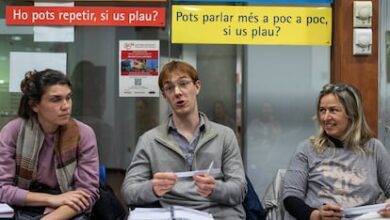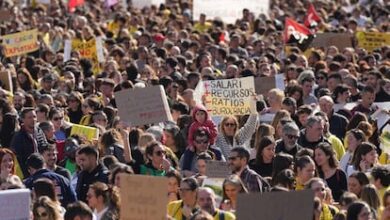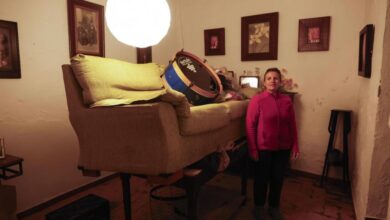
In recent months, the province of Cadiz has seen a significant increase in the activity of groups specializing in supplying fuel for narcolanchas. These high-speed boats are used to transport drugs and illegal migrants from Morocco to Spain. Police and the Guardia Civil report that the number of such groups is growing and their operations are becoming increasingly organized and audacious.
Recently, in the Punta de San Felipe area, just half a kilometer from the center of Cadiz, National Police officers observed suspicious activity on the beach. During the operation, they discovered 181 fuel canisters prepared for shipment to the narcolanchas. Seven people were detained, and more containers were found hidden in a neighboring building near the San Carlos wall.
This is just one of three operations carried out in a week. During the raids in Cadiz, more than 12,000 liters of gasoline, packed in hundreds of canisters, were seized. In Rota, police prevented an attempt to move 1,050 liters of fuel, while in El Puerto de Santa María they found 128 canisters hidden in the undergrowth and on the riverbank. Another 151 containers were found near the A-4 highway.
The Civil Guard also reports record volumes of seizures. Over the summer alone, about 30,000 liters of fuel were confiscated. In Chiclana de la Frontera, authorities dismantled an entire network that used a private home as a warehouse and even set up its own mini gas station. Up to 20,000 liters of gasoline passed through their hands each week, and at the time of their arrest, they had nearly 10,000 liters stored in 597 canisters, posing a serious threat due to the lack of safety measures.
These groups operate as independent contractors for drug cartels, supplying several organizations at once. They mainly consist of young people for whom this is a way to quickly earn large sums without direct contact with drugs. Drug traffickers are willing to pay up to 5,000 euros for a single canister of fuel, even though its price at a regular gas station does not exceed 50 euros. This price gap is explained not only by demand, but also by the need to keep boats at sea longer due to increased police controls, which drives up fuel consumption.
Previously, such deliveries were carried out by the drug cartels themselves, but now there are specialized groups focused exclusively on fuel logistics. Their operations have spread along the entire coast of Cádiz, including Sanlúcar de Barrameda and other coastal towns. As competition increases and police pressure intensifies, these groups are becoming more aggressive. Although weapons have not been used so far, incidents of attacks on law enforcement officers have become more frequent.
The Cádiz Prosecutor’s Office notes that those involved in fuel schemes exploit loopholes in the legislation. Efforts are underway to toughen penalties for such crimes by equating them to the storage and transportation of hazardous materials. There are already cases where courts have sentenced such couriers to prison, although these remain the exception for now.
Police unions emphasize a lack of resources to combat this new type of crime and are calling for Cádiz to be recognized as a special attention zone due to the scale of the drug trade. Despite the authorities’ efforts, underground fuel deliveries continue to rise, and those involved are becoming increasingly inventive and dangerous.












